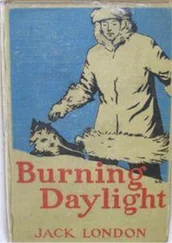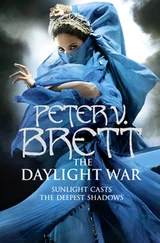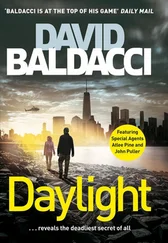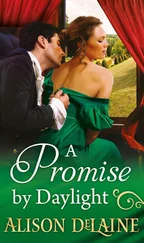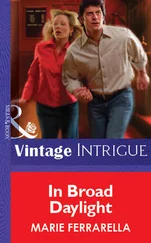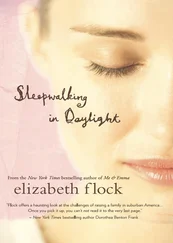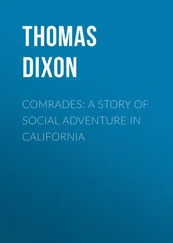Thomas Stribling - A Daylight Adventure
Здесь есть возможность читать онлайн «Thomas Stribling - A Daylight Adventure» весь текст электронной книги совершенно бесплатно (целиком полную версию без сокращений). В некоторых случаях можно слушать аудио, скачать через торрент в формате fb2 и присутствует краткое содержание. Жанр: Классическая проза, на английском языке. Описание произведения, (предисловие) а так же отзывы посетителей доступны на портале библиотеки ЛибКат.
- Название:A Daylight Adventure
- Автор:
- Жанр:
- Год:неизвестен
- ISBN:нет данных
- Рейтинг книги:4 / 5. Голосов: 1
-
Избранное:Добавить в избранное
- Отзывы:
-
Ваша оценка:
- 80
- 1
- 2
- 3
- 4
- 5
A Daylight Adventure: краткое содержание, описание и аннотация
Предлагаем к чтению аннотацию, описание, краткое содержание или предисловие (зависит от того, что написал сам автор книги «A Daylight Adventure»). Если вы не нашли необходимую информацию о книге — напишите в комментариях, мы постараемся отыскать её.
A Daylight Adventure — читать онлайн бесплатно полную книгу (весь текст) целиком
Ниже представлен текст книги, разбитый по страницам. Система сохранения места последней прочитанной страницы, позволяет с удобством читать онлайн бесплатно книгу «A Daylight Adventure», без необходимости каждый раз заново искать на чём Вы остановились. Поставьте закладку, и сможете в любой момент перейти на страницу, на которой закончили чтение.
Интервал:
Закладка:
Poggioli gave the dry smile of a scientific man. “Oh, I see. You think my coming here is providential.”
“Certainly. What else is there to think?”
“I regret to disillusion you, but it is not. It couldn’t be. It is nothing more than an extraordinary coincidence — and I can prove that, too.” With this my friend returned to his paper.
This left me frankly in a nervous state. It seemed to me we ought to do something for the woman outside. I looked at the man sitting next to us at the counter. He nodded his head sidewise at Poggioli. “He don’t live around here, does he?”
I said he didn’t.
“If he don’t live here, how does he know what’s happened in these parts?”
“You heard him say he read it in the paper.”
“He didn’t do no such thing. I watched him. He didn’t read that paper a tall, he jest turned through it, like I would a picture book.”
I told him that was Poggioli’s way of reading. It is called sight-reading — just a look and he knew it.
The hill man shook his head, “Naw, Mister, I know better’n that. I’ve watched hunderds of men read that paper sence it’s laid thar on the counter, and the fassest one tuk a hour an’ twelve minutes to git through.”
I nodded. I was not interested, so I said, “I daresay that’s true.”
“Of course hit’s so,” he drawled truculently, “ever’thing I say is so.”
“I’m not doubting your word,” I placated, “it is you who are doubting mine. You see I know my friend’s ability at sight-reading.”
This silenced him for a few moments, then he said shrewdly, “Looky here, if he gits what he knows out’n that paper, how come him to say Cordy Cancy is innocent when the paper says she’s guilty?”
“Because the judgment in the paper doesn’t agree with the evidence it presents. My friend has gone over the evidence and has judged for himself that the woman is guilty of forgery but innocent of murder.”
This gave the hill man pause. A certain expression came into his leathery face. “He’s a detectif, ain’t he?”
“Well, not exactly. He used to be a teacher in the Ohio State University, and he taught detectives how to detect.”
“Mm — mm. Who hard [hired] him to come hyar?”
“Nobody,” I said, “he just dropped in by chance.”
“Chanst, huh? You expeck me to b’leve that?”
“Yes, I must say I do.”
“Well, jest look at it from my stan’point — him comin’ hyar the very minnit the preacher is prayin’ fer he’p and the shurrf startin’ with her to the penitentiary — a great detectif like him jest drap in by chanst. Do you expeck me to b’leve that?”
All this was delivered with the greatest heat and my seat-mate seemed to hold me personally responsible for the situation.
“Well, what do you believe?” I asked in an amiable tone which gave him permission to believe anything he wanted to and no hard feelings.
“Why, jess what I said. I b’leve he wuz hard.”
His suspicion of Poggioli, who would never accept a penny for his criminological researches, amused me. “Well, that’s your privilege, but if it would strengthen your faith in me I will say that to the best of my knowledge and belief Professor Henry Poggioli’s arrival in Lanesburg, Tennessee, on the eve of Mrs. Cordy Cancy’s committal to the Nashville penitentiary, was a coincidence, a whole coincidence, and nothing but a coincidence, so help me, John Doe.”
I had hoped to lighten my companion’s dour mood, but he arose gloomily from his stool.
“I hope the Lord forgives you fer mawkin’ His holy words.”
“They are not the Lord’s holy words,” I reminded him, “they’re the sheriff’s words when he swears in a witness.”
“Anyway, you tuk His name in vain when you said ‘em.”
“Didn’t mention His name, sir. I said ‘John Doe.’”
“Anyway, Brother,” he continued in his menacing drawl, “you shore spoke with lightness. The Bible warns you against speakin’ with lightness — you kain’t git aroun’ that.” With this he took himself out of the café, scraping his feet in the doorway as a symbol of shaking my dust from his shoes.
As I watched the saturnine fellow go, Poggioli turned from his paper.
“Poses quite a riddle, doesn’t he?”
“Not for me,” I said. “I was born here in the hills.”
“You understand him?”
“I think so.”
“You didn’t observe any more precise and concrete contradiction about him?”
I tried to think of some simple contradiction in the man, something plain. I knew when Poggioli pointed it out it would be very obvious, but nothing came to my mind. I asked him what he saw.
“Two quite contradictory reactions: he was disturbed about my being a detective and about your near profanity.”
“I am afraid I don’t quite see what you mean.”
“I’ll make it simpler. He evidently was a deacon in some church.”
“Why do you say that?”
“Because he reproved the ‘lightness’ of your language. The scriptures instruct deacons to reprove the faults of the brethren, and lightness of language is one of them. So he was probably a deacon.”
“All right, say he was. What does that contradict?”
“His disturbance over my being a detective. Deacons are supposed to ally themselves with law and order.”
I laughed. “You don’t know your Tennessee hill deacons. That contradiction in them is historical. Their ancestors came here before the Revolution to worship God as they pleased and escape the excise tax. They have been for the Lord and against the law ever since.”
At this point another man hurried from the square into the Monarch café. I noted the hurry because under ordinary circumstances hill men never hurry, not even in the rain. He glanced up and down the counter, immediately came to my companion, and lifted a hand. “Excuse me, Brother, but you’re not a preacher?”
“No, I’m not,” said my companion.
“Then you are the detective that was sent. Will you come with me?”
“Just what do you mean by ‘sent’?” asked the criminologist.
“Why the Lord sent you,” explained the man hurriedly but earnestly. “Brother Johnson was jest prayin’ to the Lord to send somebody to prove Sister Cordy Cancy innocent and keep her from going to the pen. Jim Phipps heard you-all talkin’ an’ hurried out an’ told us there was a detectif in here. So He’s bound to have sent ye.”
Poggioli reflected. “I am sure I can prove the woman innocent— from the evidence printed in this paper. But what good will that do, when the trial is over and the woman already sentenced?”
“Brother,” said the countryman, “if the Lord started this work, don’t you reckon He can go on an’ finish it?”
“Look here, Poggioli,” I put in, “we’re here for some reason or other.”
“Yes, by pure chance, by accident,” snapped the psychologist. “Our presence has no more relation to this woman than…”
He was looking for a simile when I interrupted, “If you know she is innocent don’t you think it your duty to—”
The psychologist stopped me with his hand and his expression. “I believe I do owe a duty. yes. yes, I owe a duty. I’ll go do what I can.”
The man who came for him was most grateful; so were all the people in the café, for they had overheard the conversation. Everybody was delighted except me. I didn’t like Poggioli’s tone, or the expression on his face. I wondered what he really was going to do.
Well, by the time we got out of the restaurant everybody in the square seemed to know who we were. There was a great commotion. The preacher’s prayer for help had been answered instantly. It was a miracle.
The sound-truck which had been booming stood in front of the county jail on the south side of the square. Beside the truck was the sheriff’s car with the woman prisoner handcuffed in the back seat. Near the car stood another woman holding a young baby in her arms. This infant, I gathered, was the prisoner’s child, and would be left behind in the Lanesburg jail while its mother went on to the penitentiary in Nashville. The crowd naturally was in sympathy with the woman and expected us immediately to deliver her from her troubles. I heard one of the men say as we pushed forward, “That heavy man’s the detective and that slim ‘un’s his stooge; he writes down what the big ‘un does.”
Читать дальшеИнтервал:
Закладка:
Похожие книги на «A Daylight Adventure»
Представляем Вашему вниманию похожие книги на «A Daylight Adventure» списком для выбора. Мы отобрали схожую по названию и смыслу литературу в надежде предоставить читателям больше вариантов отыскать новые, интересные, ещё непрочитанные произведения.
Обсуждение, отзывы о книге «A Daylight Adventure» и просто собственные мнения читателей. Оставьте ваши комментарии, напишите, что Вы думаете о произведении, его смысле или главных героях. Укажите что конкретно понравилось, а что нет, и почему Вы так считаете.

